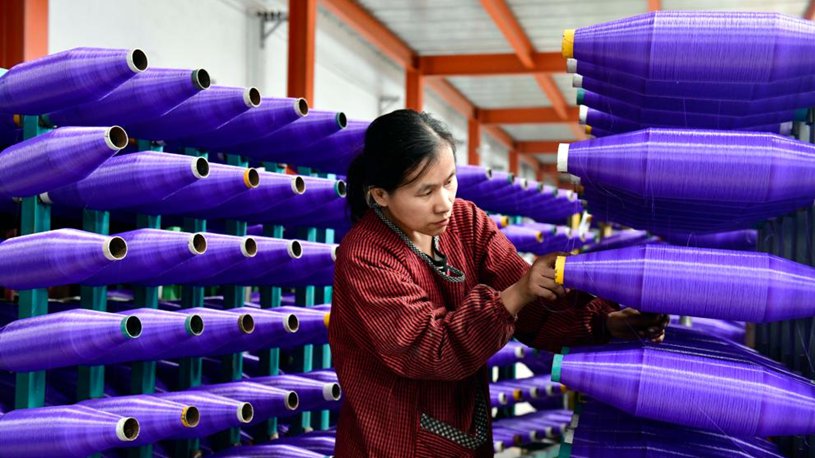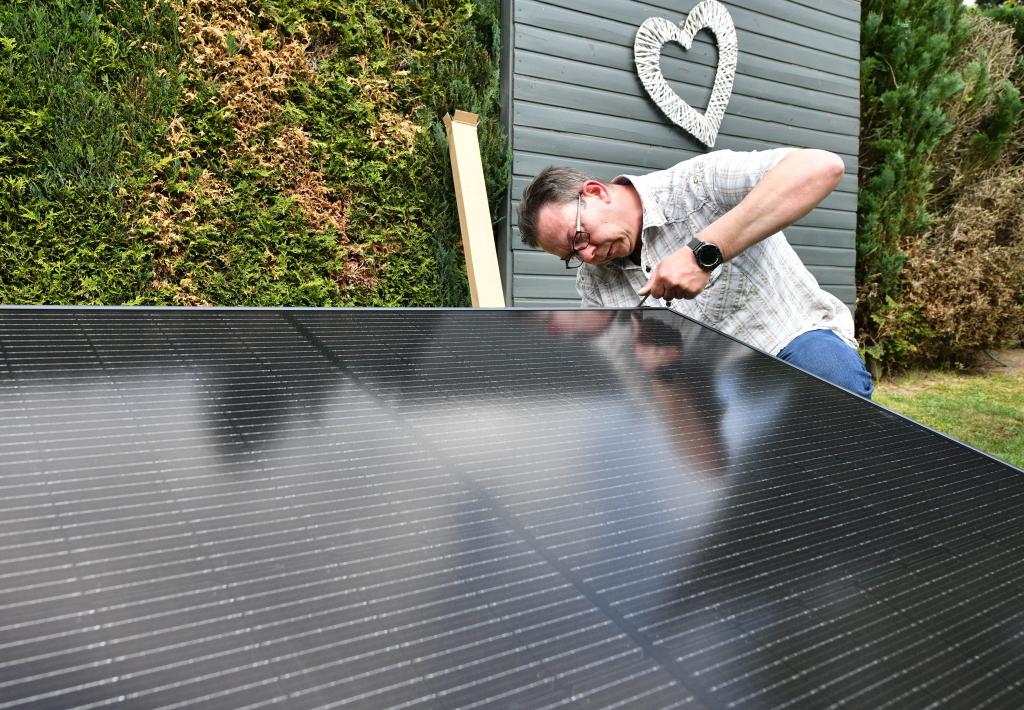
Dirk Heil installs the Chinese-made solar-powered equipment at his house in Schwarzenbek, Germany, May 30, 2023.(Xinhua/Ren Pengfei)
To achieve the energy transition in the foreseeable future, at least 300,000 skilled workers are needed before the end of this decade, according to the study conducted by the German Economic Institute (IW) on behalf of the foundation.
BERLIN, Nov. 23 (Xinhua) -- As Germany is accelerating its energy transition, demand for employees in the wind and solar sectors is picking up, with the number of online job advertisements almost doubling between 2019 and 2022, according to a study published by the Bertelsmann Stiftung on Wednesday.
"The sharp rise in demand in the wind and solar sectors shows one thing above all: in order to manage the expansion of renewable energies, we need to invest significantly more in the training and further education of workers," said Jana Fingerhut, labor market expert at Bertelsmann Stiftung.
To achieve the energy transition in the foreseeable future, at least 300,000 skilled workers are needed before the end of this decade, according to the study conducted by the German Economic Institute (IW) on behalf of the foundation.
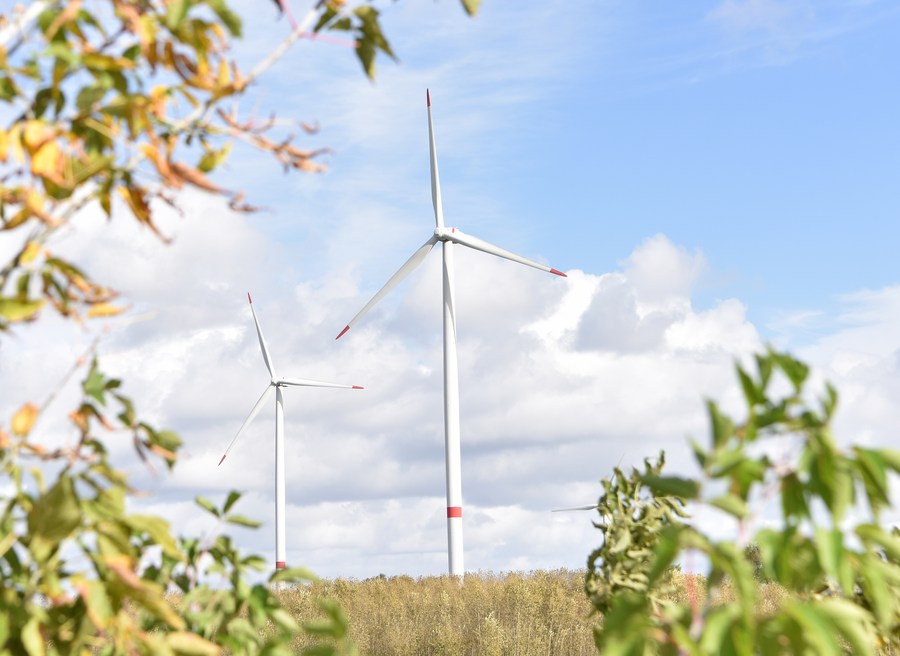
This photo taken on Oct. 14, 2023 shows wind turbines in Brandenburg, Germany. (Xinhua/Ren Pengfei)
As Germany is seeking to generate at least 80 percent of its gross electricity consumption with renewable energies by 2030, up from the present 50 percent, the country is pushing hard to expand clean energy.
Despite a slight decline in electricity generation, wind power was already the most important source of energy in Germany in the first half of the year, accounting for a share of 28.6 percent, according to official figures.
The expansion has picked up speed in recent years, but not enough to achieve the government's short-term targets, according to the Science Media Center Germany. The current pace would leave 3 gigawatts (GW) short of the 69 GW target of installed capacity in the coming year.
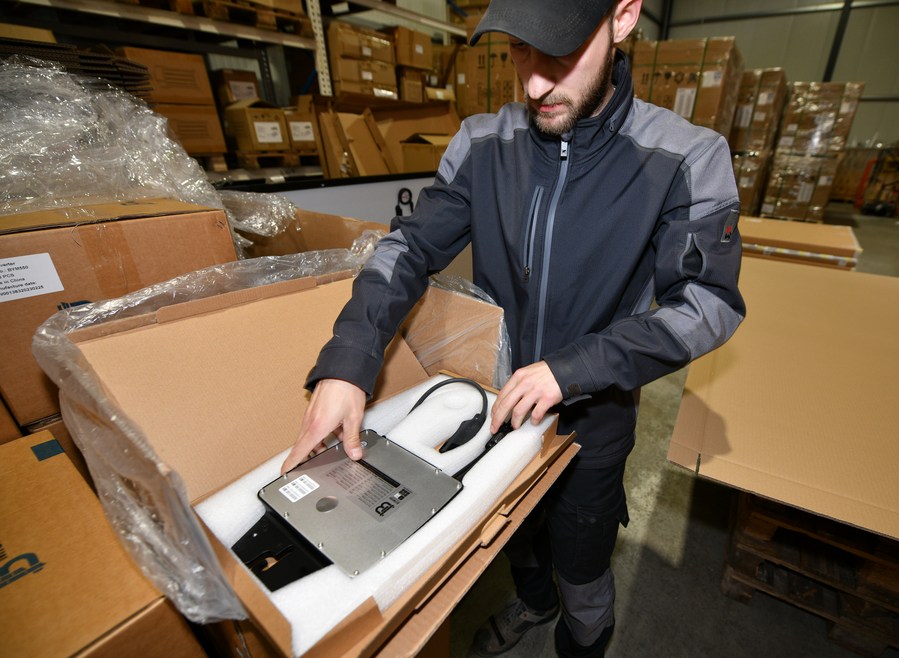
A staff member takes out a Chinese-made micro inverter from the batch packaging at the warehouse of Lauxx Energy in Ahrensburg, Germany, May 30, 2023. (Xinhua/Ren Pengfei)
"Even though we see a significant increase in new permits this year, it is still a tough challenge to reach the annual addition targets," said Baerbel Heidebroek, president of the German Wind Energy Association (BWE), in mid-October.
The expansion of solar power, on the other hand, is already achieved. According to recent data assessments, the expansion targets of 9 GW of new capacity for 2023 have been met after nine months.
Accordingly, the demand for skilled workers in the solar industry is particularly high, as three times as many jobs are advertised as in wind power, according to the Bertelsmann Stiftung.
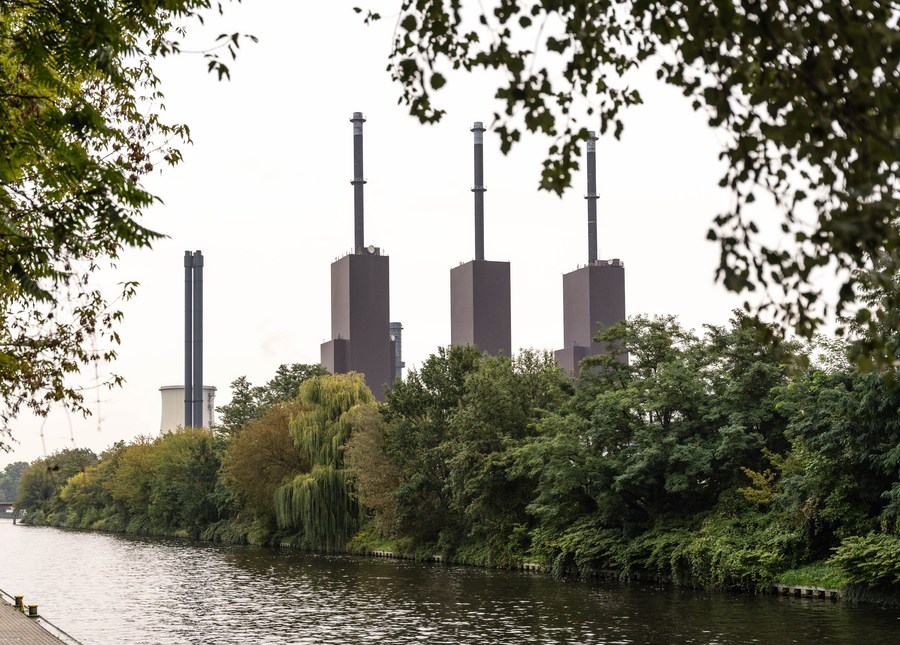
Photo taken on Sept. 8, 2022 shows a thermal power plant in Berlin, Germany. (Photo by Stefan Zeitz/Xinhua)
To counteract the general shortage of skilled workers, the German government just passed a new immigration law.
The law shows that the country "not only accepts qualified immigration, but also wants it," said Minister of Labor Hubertus Heil in early November. ■



